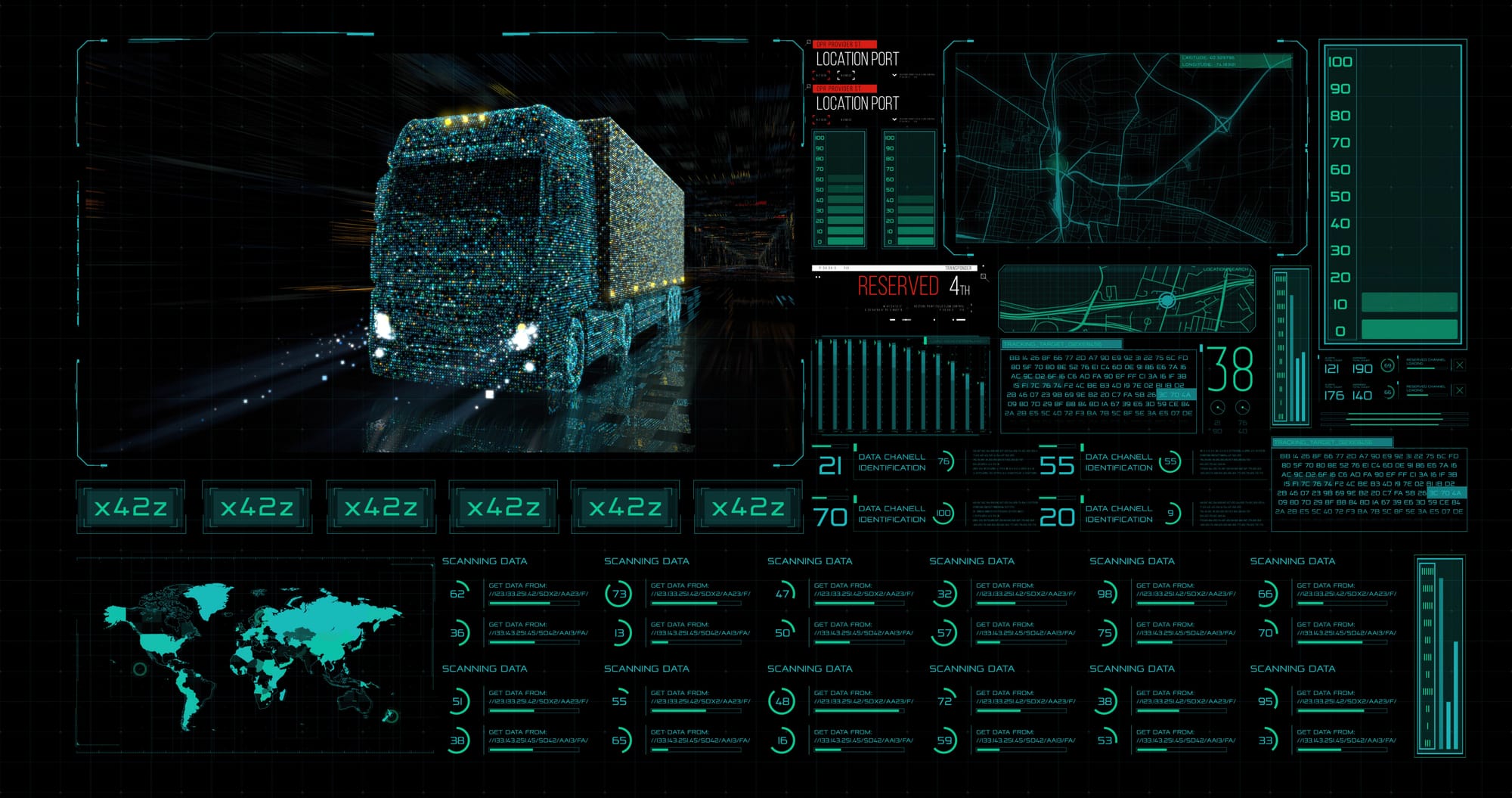The rapid advancement of artificial intelligence (AI) technology has brought about significant transformation in various aspects of our lives. From autonomous vehicles to virtual assistants, AI has become a pervasive force, revolutionizing the way we live and work. In recent years, AI has found its way into the heart of businesses, enabling unprecedented growth and innovation. This article explores the transformative power of enterprise AI and how it unlocks new possibilities for businesses across different sectors.
Understanding the Basics of Enterprise AI
Before delving into the potential of enterprise AI, it is crucial to define what it entails. Enterprise AI refers to the application of artificial intelligence technologies within business environments. It involves leveraging machine learning algorithms, natural language processing, and computer vision to automate tasks, gain insights from data, and improve decision-making processes.
AI, at its core, is the simulation of human intelligence in machines that are programmed to think and learn like humans. It analyzes vast amounts of data to detect patterns, make predictions, and perform tasks that traditionally required human intervention. Enterprise AI builds upon this foundation by specifically tailoring AI technologies to address business challenges and opportunities.
Artificial Intelligence (AI) is revolutionizing the business world with its diverse forms like machine learning, deep learning, predictive analytics, natural language processing (NLP), computer vision, and automation. To harness the full potential of AI's vast technologies, companies must navigate complexities associated with people, processes, and technology.

Adopting AI is not a straightforward journey, and industry pioneers advocate for an experimental approach rather than an all-encompassing "big bang" method. The key is to start with a well-defined hypothesis, followed by testing and meticulous measurement of results, and then iterating based on these findings. Here are ten critical steps for effective AI implementation in enterprises:
- Build Data Fluency: Cultivate a deep understanding and proficiency in handling data within your organization.
- Define Business Drivers for AI: Clearly identify the primary business objectives that AI will serve.
- Identify Opportunities: Pinpoint areas where AI can add value to your business.
- Evaluate Internal Capabilities: Assess your organization's existing capabilities to support AI implementation.
- Identify Suitable Candidates: Choose the right AI technologies and applications that align with your business needs.
- Pilot an AI Project: Begin with a small-scale AI project to test the waters.
- Establish a Baseline Understanding: Develop a fundamental comprehension of AI among your team members.
- Scale Incrementally: Gradually expand the scale of AI implementation as proficiency grows.
- Bring AI Capabilities to Maturity: Continuously refine and enhance AI capabilities in your enterprise.
- Continuously Improve AI Models and Processes: Regularly update and optimize AI models and processes for better performance.
Enterprise AI Vendors and Tool Market
The enterprise AI landscape is rich with vendors and tools catering to various AI-related capabilities. Major cloud AI platforms like NVIDIA, AWS, Google Cloud, IBM, and Microsoft offer modern tools for developing and deploying AI applications. These platforms are particularly advantageous for enterprises with an established cloud presence.
Cloud providers offer products in two categories: Data Science and Machine Learning (DSML) platforms for data scientists, and low-code modules for a broader range of enterprise users. For instance, Microsoft Azure AI offers extensive tooling, complemented by Azure Cognitive Services' pre-built AI modules. Amazon SageMaker from AWS serves as a managed machine learning service, alongside AI services that don't necessitate machine learning experience. IBM’s portfolio, largely based on Watson technology, and Google AI's MakerSuite product, are also significant contributors in this space.
Some of the easiest to use cloud AI services are found from none other than NVIDIA, as their AI Enterprise platform can be configured to allow companies to launch competitive AI product offerings based on their own internal data out of the box. This is fairly revolutionary as a product and is granting companies unprecedented access to unlock their own data and surrounding extrapolated connections.
DSML platforms like Databricks, Dataiku, DataRobot, C3 AI, H2O.ai, and RapidMiner offer comprehensive tools for creating, deploying, and managing AI models. On the other hand, MLOps platforms, including Cnvrg.io, Domino Data Lab, and Iguazio, focus on streamlining AI model production and maintenance. Kubeflow, an open-source technology, also stands out for managing machine learning workflows on Kubernetes.
While many platforms specialize in specific capabilities, it's noteworthy that most major players are expanding to encompass the full spectrum of AI development, deployment, and monitoring capabilities.
But what are the specific technologies that fall under the umbrella of enterprise AI? Let's explore some of them:
Machine Learning Algorithms
Machine learning algorithms are at the heart of enterprise AI. These algorithms enable machines to learn from data and improve their performance over time without being explicitly programmed. They can be trained to recognize patterns, classify data, and make predictions based on historical information. By leveraging machine learning algorithms, businesses can automate repetitive tasks, optimize processes, and make data-driven decisions.
Natural Language Processing
Natural language processing (NLP) is another critical component of enterprise AI. It focuses on enabling machines to understand and interpret human language. NLP algorithms can analyze text, extract meaning, and generate responses that mimic human conversation. This technology is particularly useful in customer service applications, where chatbots can interact with customers, answer their queries, and provide personalized recommendations.

Computer Vision
Computer vision is the field of AI that enables machines to interpret and understand visual information. It involves algorithms that can analyze images or videos, identify objects, and extract relevant information. Computer vision has numerous applications in industries such as healthcare, manufacturing, and retail. For example, it can be used to detect anomalies in medical images, monitor production lines for quality control, or enable cashier-less checkout in stores.
Defining Enterprise AI
Enterprise AI encompasses a wide range of technologies and applications that are focused on delivering business value. It extends beyond mere automation to encompass data-driven analytics, intelligent process automation, and cognitive computing. By combining these capabilities, enterprise AI enables businesses to streamline operations, enhance decision-making, and deliver personalized experiences to customers.
Intelligent process automation, for instance, involves using AI technologies to automate complex business processes that require cognitive capabilities. This can include tasks such as document processing, fraud detection, or supply chain optimization. By automating these processes, businesses can reduce errors, improve efficiency, and free up human resources to focus on more strategic activities.
Cognitive computing, on the other hand, refers to AI systems that can simulate human thought processes. These systems can understand, reason, and learn from data to perform tasks that typically require human intelligence. For example, cognitive computing can be used to analyze unstructured data, such as social media posts or customer reviews, to extract insights and sentiment analysis.
The Role of AI in Business Transformation
AI has become a cornerstone of business transformation, driving innovation and enabling organizations to stay competitive in today's digital era. By leveraging AI technologies, businesses can unlock valuable insights from their data, optimize their processes, and gain a competitive edge. AI-powered solutions can be applied across various business functions, including sales, marketing, customer service, operations, and finance, to name a few.
For instance, in sales and marketing, AI can help businesses identify potential leads, personalize marketing campaigns, and optimize pricing strategies. In customer service, AI-powered chatbots can provide instant support and resolve common queries, improving customer satisfaction and reducing response times. In operations, AI can optimize supply chain management, predict maintenance needs, and improve inventory management.
Furthermore, AI empowers businesses to make informed decisions by analyzing complex data sets and identifying trends, patterns, and correlations that humans might overlook. This data-driven approach not only enhances the efficiency of decision-making but also enables organizations to anticipate market trends, mitigate risks, and seize new opportunities.
As technology continues to advance, the potential of enterprise AI will only grow. Businesses that embrace AI and leverage its capabilities will be better equipped to navigate the challenges and opportunities of the digital age.
The Potential of AI in Various Business Sectors
While the potential of AI extends to numerous industries, let's explore some specific sectors where AI is making a significant impact.

AI in Manufacturing
Manufacturing is an industry that stands to benefit greatly from the adoption of AI technologies. AI-powered robotics and automation systems can improve production efficiency, reduce costs, and enhance product quality. By analyzing real-time data from sensors and machines, AI algorithms can detect anomalies, predict maintenance needs, and optimize production schedules.
Moreover, AI-driven predictive analytics can help manufacturers optimize supply chain operations, ensuring timely delivery of materials and reducing inventory costs. By harnessing the power of AI, manufacturers can transform their operations and gain a competitive advantage in the global market.

AI in Healthcare
The healthcare sector is another area where AI holds immense potential. From streamlining administrative tasks to identifying potential diseases and developing personalized treatment plans, AI is revolutionizing patient care. Machine learning algorithms can analyze medical records, genomic data, and clinical research to identify patterns and assist physicians in diagnosing and treating illnesses.
AI-powered chatbots and virtual assistants are also transforming patient interactions, providing round-the-clock support, and reducing the burden on healthcare professionals. With AI, healthcare organizations can improve patient outcomes, drive operational efficiency, and advance medical research and innovation.
AI in Retail
Retailers are increasingly turning to AI to provide personalized shopping experiences, optimize inventory management, and enhance customer service. AI-powered recommendation engines can analyze customer behavior, preferences, and purchase history to offer tailored product recommendations, increasing customer satisfaction and driving sales.
Additionally, AI can automate repetitive tasks such as inventory tracking, price optimization, and demand forecasting. By harnessing AI technologies, retailers can streamline their supply chain, optimize pricing strategies, and improve overall operational efficiency.
Key Benefits of Implementing Enterprise AI
Implementing enterprise AI offers numerous benefits for businesses looking to stay ahead in today's digital landscape.
Enhanced Decision Making
With AI's ability to process vast amounts of data and identify meaningful insights, businesses can make data-driven decisions with greater accuracy and speed. AI algorithms can analyze market trends, customer behavior, and competitive intelligence to provide actionable insights for strategic decision making. This empowers businesses to make informed choices that drive growth and profitability.
Furthermore, AI can assist in scenario modeling and predictive analytics, enabling organizations to anticipate future outcomes and plan accordingly. By leveraging AI's capabilities, businesses can optimize their decision-making processes and stay agile in a rapidly evolving business environment.
Improved Operational Efficiency
AI technologies can automate mundane and repetitive tasks, freeing up resources and allowing employees to focus on more value-added activities. From chatbots handling customer inquiries to automated invoice processing, AI can optimize workflows and reduce operational costs. By automating routine tasks, businesses can increase efficiency, productivity, and ultimately, profitability.
Moreover, AI-powered process optimization can identify bottlenecks and inefficiencies, enabling businesses to streamline operations and enhance overall performance. By leveraging intelligent automation, businesses can achieve higher levels of efficiency, accuracy, and scalability.
Personalized Customer Experience
In today's customer-centric business landscape, providing personalized experiences is key to driving customer satisfaction and loyalty. AI technologies enable businesses to analyze vast amounts of customer data to gain deep insights into individual preferences, behaviors, and expectations.
By leveraging this data, businesses can deliver personalized product recommendations, tailored marketing campaigns, and exceptional customer service. AI-powered chatbots and virtual assistants can also provide personalized support and assistance, cementing customer loyalty and fostering long-term relationships.
Overcoming Challenges in Enterprise AI Adoption
While the potential of enterprise AI is vast, there are several challenges that businesses must address when adopting AI technologies.
Data Privacy Concerns
One of the primary concerns surrounding AI adoption is data privacy and security. With AI relying heavily on data, ensuring the privacy and protection of sensitive information is paramount. Businesses must implement secure data governance policies, employ strong encryption techniques, and comply with regulatory requirements to safeguard customer data and maintain trust.
Additionally, businesses must be transparent about the data they collect, how it is used, and obtain explicit consent from users. By prioritizing data privacy, businesses can mitigate risks and foster trust in their AI initiatives.
Technical Implementation Hurdles
Implementing AI technologies can be complex and challenging. Organizations must have the necessary infrastructure, computing power, and skilled personnel to develop and deploy AI solutions. Integration with existing systems may require significant effort and investment.
To overcome these hurdles, businesses can consider partnering with AI technology providers, leveraging cloud-based platforms, and investing in employee training programs. By addressing technical implementation challenges, businesses can successfully adopt and integrate AI technologies into their operations.
The Future of Enterprise AI
Looking ahead, the future of enterprise AI is promising, with continuous advancements and evolving trends.
Predicted Trends in AI Technology
AI technology is expected to become even more sophisticated, capable of processing larger and more complex datasets. Advancements in natural language processing, computer vision, and deep learning will enable AI systems to understand and interact with humans more intuitively and effectively.
Additionally, AI-powered robotics and autonomous systems are poised to revolutionize industries such as transportation, logistics, and agriculture. The integration of AI with emerging technologies, such as the Internet of Things (IoT) and blockchain, will further amplify its impact across various sectors.
Preparing Your Business for AI Integration
As AI continues to reshape the business landscape, it is imperative for organizations to prepare for its integration. Businesses should start by identifying areas where AI can deliver the greatest value, whether it be automating repetitive tasks, improving customer experiences, or uncovering valuable insights from data.
Developing a comprehensive AI strategy, involving key stakeholders, and fostering a culture of innovation and experimentation are crucial steps in embracing the potential of enterprise AI. Successful AI integration requires a thoughtful approach that aligns AI initiatives with business goals and ensures proper infrastructure, data governance, and talent management.
Enterprise AI has the power to transform businesses, unlock new possibilities, and drive sustainable growth. By harnessing the capabilities of AI technologies, businesses can enhance decision-making, improve operational efficiency, and deliver personalized experiences to customers. However, successful adoption requires addressing challenges such as data privacy concerns and technical implementation hurdles. As the future of enterprise AI unfolds, organizations must be proactive in preparing for AI integration to stay competitive in this rapidly evolving business ecosystem.

